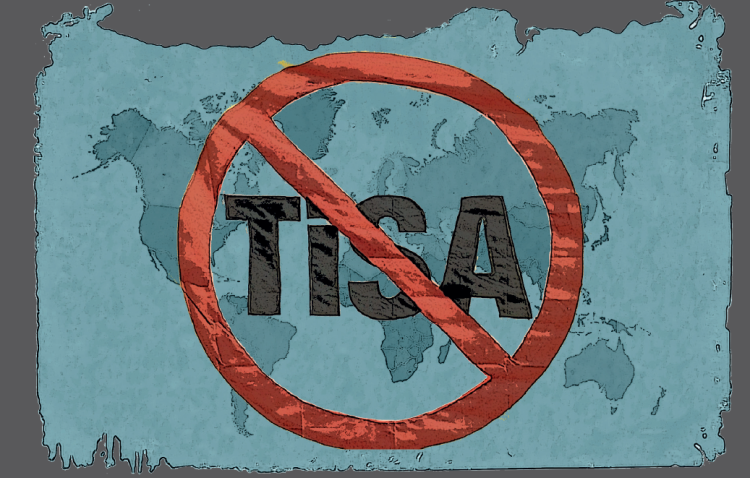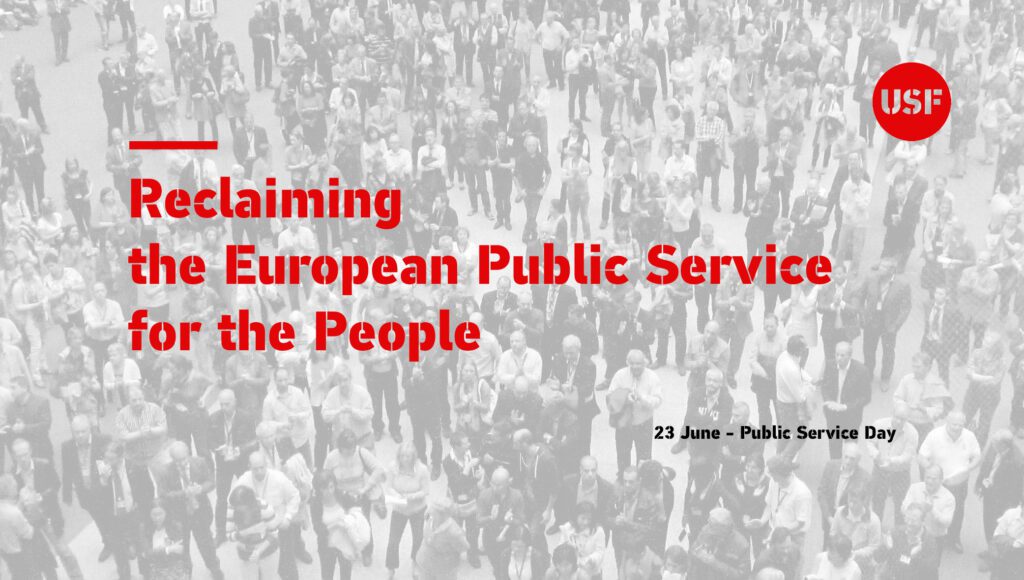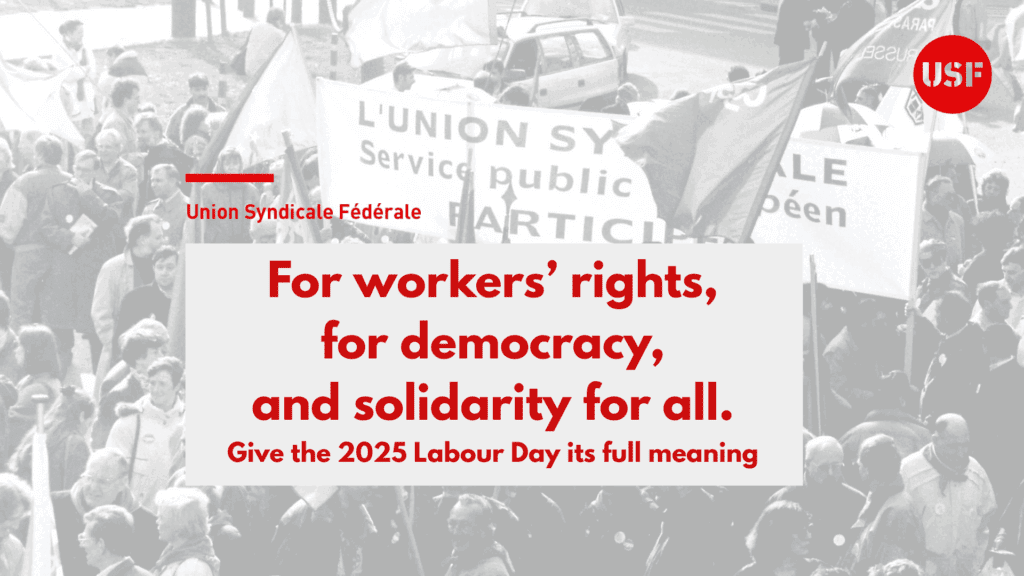ETUC POSITION ON THE PLURILATERAL TRADE IN SERVICES AGREEMENT (TiSA)
Approved by the ETUC Permanent Committee on International Matters, Trade and International Development on 14 January 2016.
The European Trade Union Confederation (ETUC) and its affiliates call for a reorientation of EU Trade Policy to promote economic, social and environmental justice. For the ETUC, an open trading system is important but should not be an end in itself. It should promote decent work in the EU and abroad.
The ETUC believes that global trade in both goods and services must be conducted under fair conditions in order to guarantee the protection of labour rights and to enable the wider public to benefit from possible welfare gains. In order to guarantee the effective protection of labour rights, the ETUC insists that all EU trade and investment agreements must include enforceable labour protections.
The ETUC has made its position and demands regarding trade and investment agreements very clear in the context of the public debates around the agreements between the EU and the US (TTIP) as well as Canada (CETA). The EU has been negotiating a plurilateral agreement on trade in services (TiSA) since 2012 together with 22 other states. According to the mandate given to the EU Commission by the Council, this agreement should aim at extensive liberalisation by being “comprehensive and ambitious” and “apply in principle to all sectors and modes of supply”.
An examination of the mandate and of leaked chapters of the draft agreement leads the ETUC to call for a redefinition of the mandate and for the negotiations to address the following areas of concern.
Negotiations Need More Transparency
The ETUC is seriously concerned that the negotiations have been conducted so far without the required level of transparency while it appears that all negotiation documents will be officially published only five years after negotiations have been concluded. EU Commissioner for trade Cecilia Malmström says that since she took office, the Commission has put in place a new transparency initiative which has made EU trade policy more transparent than ever before. However, this initiative does not appear to go beyond the TTIP debate and public information about TiSA remains scant.
The Council allowed the negotiation mandate to be made public only two years after the start of the negotiations, demonstrating also the reluctance of EU member states to ensure effective transparency at both national and European level. In any event, publication of the mandate is of little use without information about the developments and changes that have taken place during negotiations. The “transparency chapter” is limited in scope and does not cover the publication of negotiation positions and documents.
However, the negotiating partners have to inform all TiSA parties and social partners about planned changes or renewals of laws and have to give everybody the opportunity to check whether these measures would affect them. TiSA rules on “transparency” appear to bring the right to regulate into question by extending to lobbyists the possibility to influence the law making process – even before democratically elected parliaments can deal with the issues – as well as to institutionalise a legislative chilling process.
The ETUC finds such proposals unacceptable and opposes in particular the US system of “notice and comment” that extends such unfair advantages to industrial lobbies. Overall, transparency cannot consist of the mere provision of information. The ETUC calls on the Commission to involve in real consultation and at all stages of the negotiations the European parliament, the social partners and civil society organisations. The ETUC also asks that all relevant documents be released in good time.




